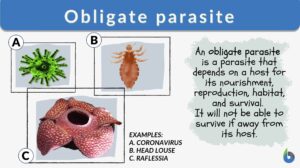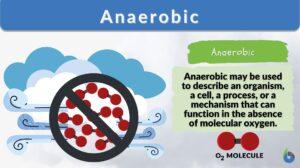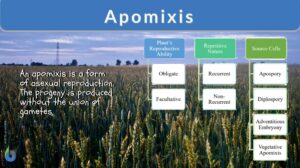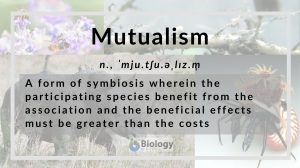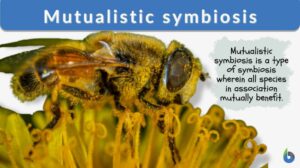Search Results for: obligate
Obligate aerobe
Before we define obligate aerobes, let us first understand and define aerobic organisms. Aerobic organisms are those that... Read More
Obligate parasite
Parasitism is a form of symbiosis that occurs between a parasite and its host. The parasite is the organism that generally... Read More
Obligate anaerobe
Definition noun An anaerobe that does not require oxygen and lives only in anaerobic environment. Supplement Exposure to... Read More
Facultative anaerobe
Facultative Anaerobe Definition What does facultative anaerobe mean? Facultative organisms are the most adaptable... Read More
Aerotolerant
Aerotolerant Definition The term "aerotolerant" pertains to an organism that does not require oxygen for growth but can... Read More
Anaerobic bacteria
Bacteria are classified according to the need for oxygen to survive and grow. For example, aerobic bacteria are bacteria... Read More
Parthenogenesis
To reproduce, by definition, means to produce new offspring. The process is referred to as reproduction, which is one of the... Read More
Parasitism
Organisms depend on different sources of food to survive. Larger organisms like plants make their own food (autotrophs) and... Read More
Aerobic bacteria
Aerobic Bacteria Definition What does aerobic mean in biology? As the name suggests, 'aerobe' in biology means organisms... Read More
Thermophile
Thermophiles Definition What are thermophiles? Let us first understand the literal meaning of the word ‘thermophile’.... Read More
Fermentation
Fermentation Definition What is fermentation? Fermentation is the breaking down of sugar molecules into simpler compounds... Read More
Obligate mutualism
Definition noun A type of mutualism in which the species involved are in close proximity and interdependent with one... Read More
Hyperthermophile
Definition noun, plural: hyperthermophiles An organism that is adapted to live and thrive at temperature as high as 80°C... Read More
Cell theory
What Is Cell Theory? Biological cell theory explains the idea of organismal constitution, structure, and function. It... Read More
Mutualistic symbiosis
Mutualistic Symbiosis Definition In order to understand what a mutualistic symbiotic relationship means, we will break down... Read More
Biological Viruses
The prime directive of all organisms is to reproduce and survive and this also applies to viruses. Apparently, viruses are... Read More
Community Patterns
By: Maria Victoria GonzagaIn the previous lesson, we learned what a population is, its attributes, and processes... Read More
Lycinibacillus fusiformis
Definition noun A long rod-shaped obligate aerobe organism that is able to utilize oxygen to metabolize numerous sugars... Read More
New Zealand’s Unique Flora
By: Maria Victoria GonzagaIn the previous lesson, we've come to know some of the most fascinating endemic... Read More
Cell Biology
The cell is defined as the fundamental, functional unit of life. Some organisms are comprised of only one cell whereas... Read More
Toxoplasma gondii
Definition noun A parasitic protozoon of the taxonomic family Sarcocystidae that causes toxoplasmosis Supplement Toxoplasma... Read More
Eubacteria
Eubacteria are prokaryotic microorganisms consisting of a single cell lacking a nucleus and containing DNA is a single... Read More
Alkaliphile
Definition noun, plural: alkaliphiles An organism that can live and thrive in an alkaline environment Supplement An... Read More
Proteobacteria
Definition noun (taxonomy) A phylum of the domain Bacteria that includes medically and scientifically important species such... Read More
Clostridium tetani
Definition noun An obligate anaerobic rod shaped and gram-positive bacterium which appears to looks like a drumstick that is... Read More

